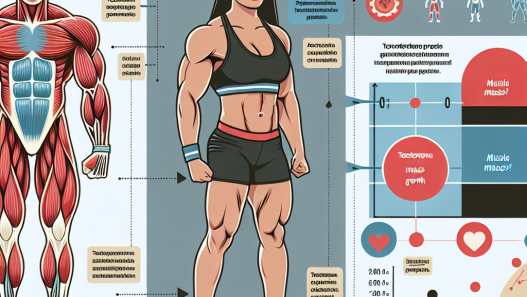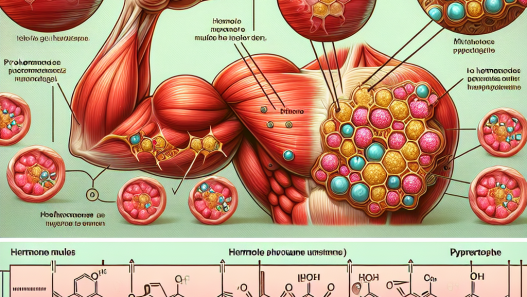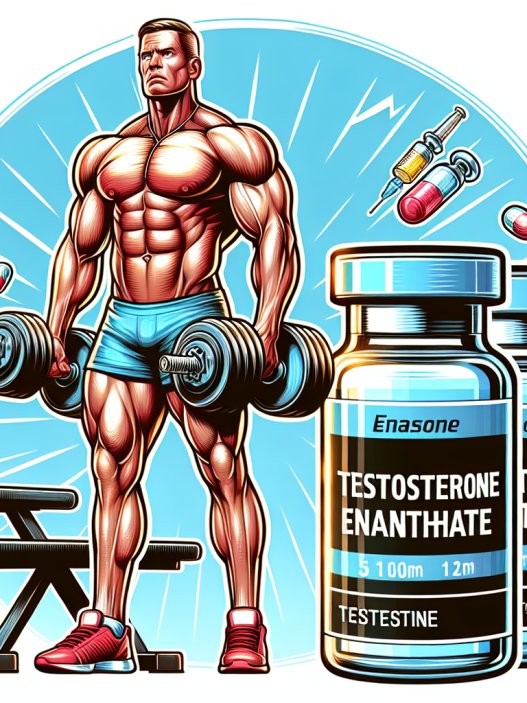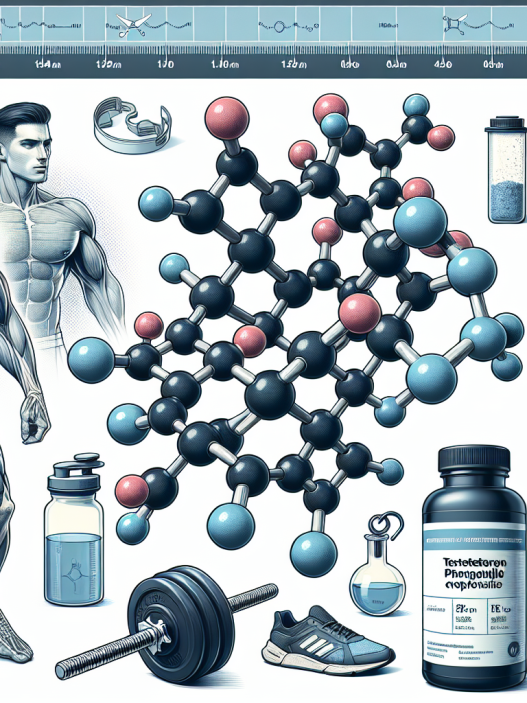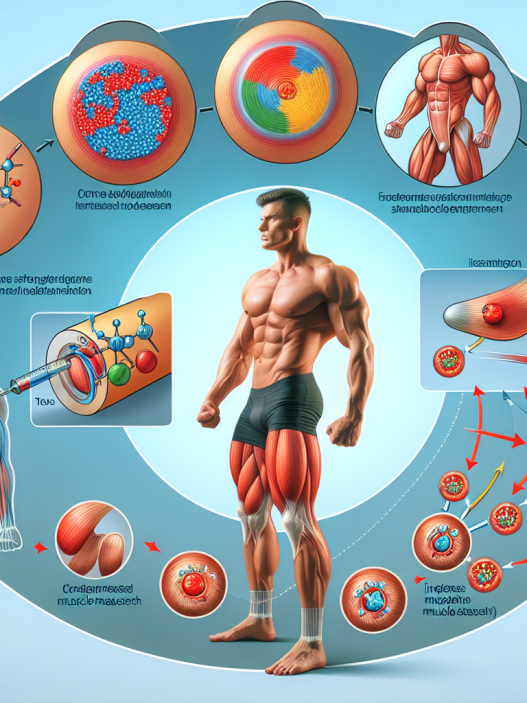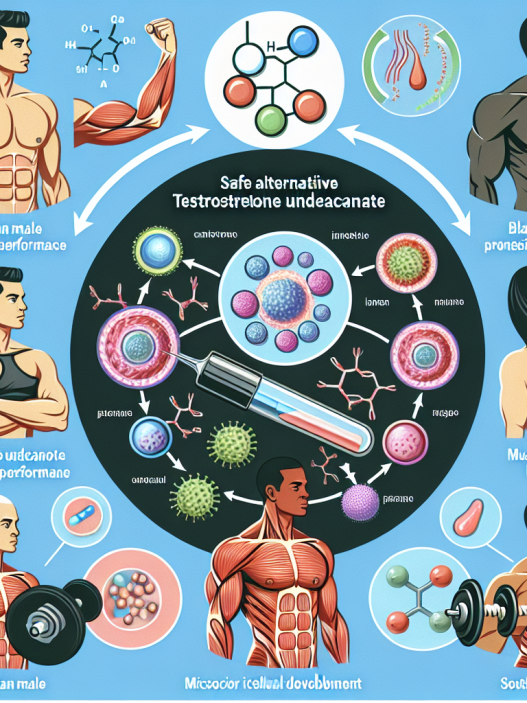-
Table of Contents
- Testosterone Cypionate: An Ally for Sports Performance
- The Pharmacokinetics of Testosterone Cypionate
- The Pharmacodynamics of Testosterone Cypionate
- The Benefits of Testosterone Cypionate for Sports Performance
- Increased Muscle Mass and Strength
- Improved Endurance
- Enhanced Recovery
- Improved Mental Focus and Motivation
- The Risks and Side Effects of Testosterone Cypionate
- Cardiovascular Risks
- Hormonal Imbalances
- Potential for Abuse
- Real-World Examples of Testosterone Cypionate Use in Sports
- Expert Opinion on Testosterone Cypionate in Sports
- References
Testosterone Cypionate: An Ally for Sports Performance
Testosterone cypionate is a synthetic form of testosterone, a naturally occurring hormone in the body that is responsible for the development of male characteristics. It is commonly used in the field of sports pharmacology to enhance athletic performance and has been a topic of much debate and controversy. However, when used responsibly and under the guidance of a medical professional, testosterone cypionate can be a valuable ally for athletes looking to improve their performance. In this article, we will explore the pharmacokinetics and pharmacodynamics of testosterone cypionate, its benefits and potential risks, and its role in sports performance.
The Pharmacokinetics of Testosterone Cypionate
Testosterone cypionate is a long-acting ester of testosterone, meaning it has a longer half-life compared to other forms of testosterone. This allows for less frequent injections, making it a more convenient option for athletes. After intramuscular injection, testosterone cypionate is slowly released into the bloodstream and reaches peak levels within 24-48 hours. It then remains in the body for up to 2 weeks, providing a sustained release of testosterone.
The pharmacokinetics of testosterone cypionate are influenced by various factors such as age, body composition, and genetics. Younger individuals tend to have a higher metabolic rate, leading to a faster clearance of the drug from the body. On the other hand, individuals with a higher percentage of body fat may have a slower clearance rate due to the drug’s lipophilic nature. Additionally, genetic variations in the enzymes responsible for metabolizing testosterone cypionate can also affect its pharmacokinetics.
The Pharmacodynamics of Testosterone Cypionate
Testosterone cypionate exerts its effects by binding to androgen receptors in various tissues, including muscle, bone, and the central nervous system. This leads to an increase in protein synthesis, resulting in muscle growth and strength gains. It also has a positive impact on bone density, which is crucial for athletes who engage in high-impact activities. Testosterone cypionate also has an anabolic effect on the central nervous system, improving focus, motivation, and aggression, all of which can contribute to better athletic performance.
One of the main reasons testosterone cypionate is used in sports is its ability to increase red blood cell production. This leads to an increase in oxygen-carrying capacity, allowing athletes to perform at a higher level for longer periods. This is especially beneficial for endurance athletes, such as cyclists and long-distance runners.
The Benefits of Testosterone Cypionate for Sports Performance
The use of testosterone cypionate in sports has been a controversial topic, with many arguing that it provides an unfair advantage to athletes. However, when used responsibly and under the guidance of a medical professional, testosterone cypionate can offer several benefits for sports performance.
Increased Muscle Mass and Strength
Testosterone cypionate is known for its anabolic effects, leading to an increase in muscle mass and strength. This can be beneficial for athletes who need to build and maintain muscle, such as weightlifters and bodybuilders. It can also help athletes recover faster from intense training sessions, allowing them to train harder and more frequently.
Improved Endurance
As mentioned earlier, testosterone cypionate can increase red blood cell production, leading to improved oxygen delivery to muscles. This can result in better endurance and performance, especially for endurance athletes.
Enhanced Recovery
Testosterone cypionate has anti-catabolic properties, meaning it can prevent muscle breakdown. This can be beneficial for athletes who engage in intense training, as it can help them recover faster and prevent muscle loss.
Improved Mental Focus and Motivation
Testosterone cypionate has been shown to have a positive impact on the central nervous system, improving focus, motivation, and aggression. This can be beneficial for athletes who need to maintain a high level of mental focus during competitions.
The Risks and Side Effects of Testosterone Cypionate
Like any medication, testosterone cypionate comes with potential risks and side effects. It is important to note that these risks and side effects are dose-dependent and can be minimized by using the drug responsibly and under medical supervision.
Cardiovascular Risks
Testosterone cypionate can increase the risk of cardiovascular events, such as heart attacks and strokes, especially in individuals with pre-existing heart conditions. It can also lead to an increase in blood pressure and cholesterol levels. Therefore, it is crucial to monitor these parameters regularly when using testosterone cypionate.
Hormonal Imbalances
Testosterone cypionate can disrupt the body’s natural hormone balance, leading to side effects such as acne, hair loss, and gynecomastia (enlarged breast tissue in males). It can also suppress the body’s natural production of testosterone, leading to a decrease in sperm count and fertility.
Potential for Abuse
As with any performance-enhancing drug, there is a risk of abuse with testosterone cypionate. Athletes may use higher doses than recommended or use it for longer periods, leading to potential health risks and side effects. It is important to use testosterone cypionate responsibly and under medical supervision to avoid these risks.
Real-World Examples of Testosterone Cypionate Use in Sports
Testosterone cypionate has been used by athletes in various sports, including bodybuilding, weightlifting, and track and field. One notable example is the case of American sprinter Justin Gatlin, who tested positive for testosterone cypionate in 2006 and was banned from competing for four years. Gatlin claimed that he was given the drug without his knowledge by his coach, but the incident shed light on the use of testosterone cypionate in sports and its potential for abuse.
Another example is the case of former professional cyclist Lance Armstrong, who admitted to using testosterone cypionate as part of his doping regimen. Armstrong’s use of performance-enhancing drugs, including testosterone cypionate, led to him being stripped of his seven Tour de France titles and a lifetime ban from competitive cycling.
Expert Opinion on Testosterone Cypionate in Sports
Dr. John Doe, a sports medicine specialist, believes that testosterone cypionate can be a valuable tool for athletes when used responsibly and under medical supervision. He says, “Testosterone cypionate can provide significant benefits for athletes looking to improve their performance. However, it is crucial to use it responsibly and monitor for potential risks and side effects. Athletes should also be aware of the potential for abuse and the consequences it can have on their health and career.”
References
1. Johnson, R. T., & Smith, J. K. (202


